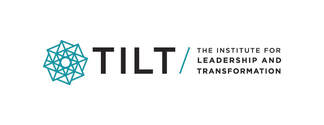Theory and synthesis
Aim
The aim of this module is to provide opportunities for participants of the Dynamics of Leading and Consulting programme who have completed the Group Relations Conference plus two of the elective modules to synthesize the major theoretical foundations of the field of systems psychodynamics by reflecting on their experiences during the programme and applying their insights to their practice. Successful completion of this module will lead to receiving the programme certificate.
Assignment guidelines
Successful completion of this module of the Dynamics of Leading and Consulting programme requires the satisfactory completion of two assessed pieces of written work:
1) Reflection and learning log
A progressively reflective journal setting out how the theories, concepts and experience of the course are being digested and applied, both within the modules and in the inter-modular spaces. The log may include:
2) Academic paper - publication standard
To identify a theme or topic or case study that illuminates the issues of the Dynamics of Leading and Consulting for a practitioner audience. The piece should identify theories and concepts that can help the reader to think more deeply about behaviour in organisations. The paper should draw on the reading and ‘case discussion’ approach used in the programme. Details of requirements for the presentation of the paper are:
Submission
Aim
The aim of this module is to provide opportunities for participants of the Dynamics of Leading and Consulting programme who have completed the Group Relations Conference plus two of the elective modules to synthesize the major theoretical foundations of the field of systems psychodynamics by reflecting on their experiences during the programme and applying their insights to their practice. Successful completion of this module will lead to receiving the programme certificate.
Assignment guidelines
Successful completion of this module of the Dynamics of Leading and Consulting programme requires the satisfactory completion of two assessed pieces of written work:
- A Reflection & Learning Log (3,000 words)
- A publication-ready, academic standard written paper (3,000 words)
1) Reflection and learning log
A progressively reflective journal setting out how the theories, concepts and experience of the course are being digested and applied, both within the modules and in the inter-modular spaces. The log may include:
- Case material
- Personal reflection, insights and thinking
- Unresolved questions and dilemmas
- Areas of contention and disagreement with the literature or concepts engaged with
- Identifying how to describe oneself as a practitioner
- What behaviours may be identified for development or transformation
- Feelings about learning by experience
- Creative media can also be used to present the Reflection & Learning log.
2) Academic paper - publication standard
To identify a theme or topic or case study that illuminates the issues of the Dynamics of Leading and Consulting for a practitioner audience. The piece should identify theories and concepts that can help the reader to think more deeply about behaviour in organisations. The paper should draw on the reading and ‘case discussion’ approach used in the programme. Details of requirements for the presentation of the paper are:
- Up to 3,000 words
- Harvard referencing
- Clearly described context and case content (where used)
- Quality of the writing: clarity and accuracy as well as presentation
- Capacity for original thought and application/relating theoretical ideas to boardroom practice
- Logical presentation of argument and appropriate choice of literature to illustrate thesis
- Reflexive approach
Submission
- Candidates should submit their written assignments to Dr Jean Cooper.
- Assignments will be assessed by Dr. Jean Cooper (TILT) and moderated by Dr. Mannie Sher (TIHR) and Dr. Leslie Brisset (TIHR).
- Submissions should be in the form of an electronic copy.
- Either a pass will be awarded, or revisions and a resubmission date suggested.
For more information please contact Dr. Jean Cooper

